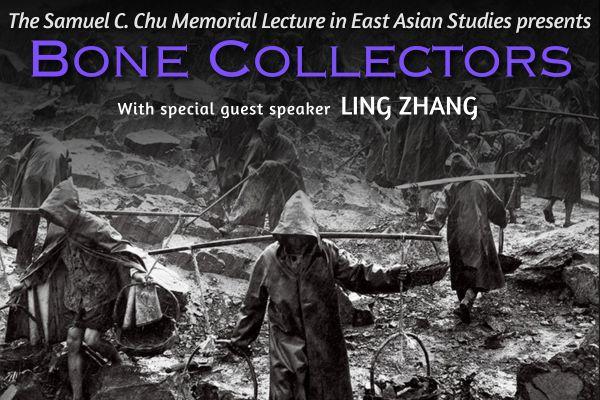
The Department of History presents the 2024 Samuel C. Chu Memorial Lecture in East Asian Studies with special guest speaker Ling Zhang.
The lecture will begin at 5pm with a small reception preceding at 4:30 pm.
Abstract:
The 2020 monsoon season brought tremendous rain and wreaked havoc on many river systems across China. After floods finally subsided, a city in east China erected a monument to commemorate the disaster and the heroic acts of local people. But some in the city were not pleased. “If dealing with minor floods warrants a monument,” they questioned, “what about those hundreds and thousands of people who gave their lives to building the hydroelectric dam upstream, whose labor and sacrifice have significantly contributed to the prevention or lessening of flooding in the past many decades?” Calling themselves “constructors,” in contrast to two other social groups, “local folks” and “flood refugees,” these men and women campaigned to establish a different monument in order to commemorate their comrades, friends, and parents who lost their lives or experienced extraordinary hardship for the sake of dam construction during the 1950s–60s, the height of China’s socialist construction. Don’t those people, more than anyone else, deserve a monument and be named heroes? Shouldn’t they receive proper burial? How wrong is it that the country has forgotten its builders and chosen to revere less significant people and things? These emotionally charged questions of theirs, which have inspired my oral history research, supply a testimony to the ambiguous, fragmented, and contested nature of the memoryscape sprawling across China’s socialist to postsocialist transition.
Bio:
Ling Zhang is an Associate Professor in the Faculty of Asian and Middle Eastern Studies at the University of Cambridge and fellow of Gonville and Caius College. She is a historian of Chinese economy, environment, political ecology, and history of science and technology. She is the author of The River, the Plain, and the State: An Environmental Drama in Northern Song China (Cambridge University Press, 2016), which receives the George Perkins Marsh Prize from the American Society for Environmental History for the Best Book in Environmental History of 2017. With John McNeill, she co-edits the book series “Studies in Environment and History” published by Cambridge University Press. This lecture draws from two monographs she is writing: 108 Meters and Geotrauma.
